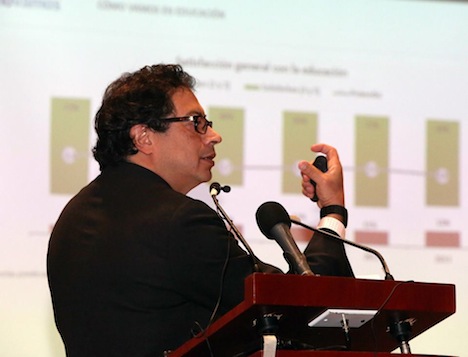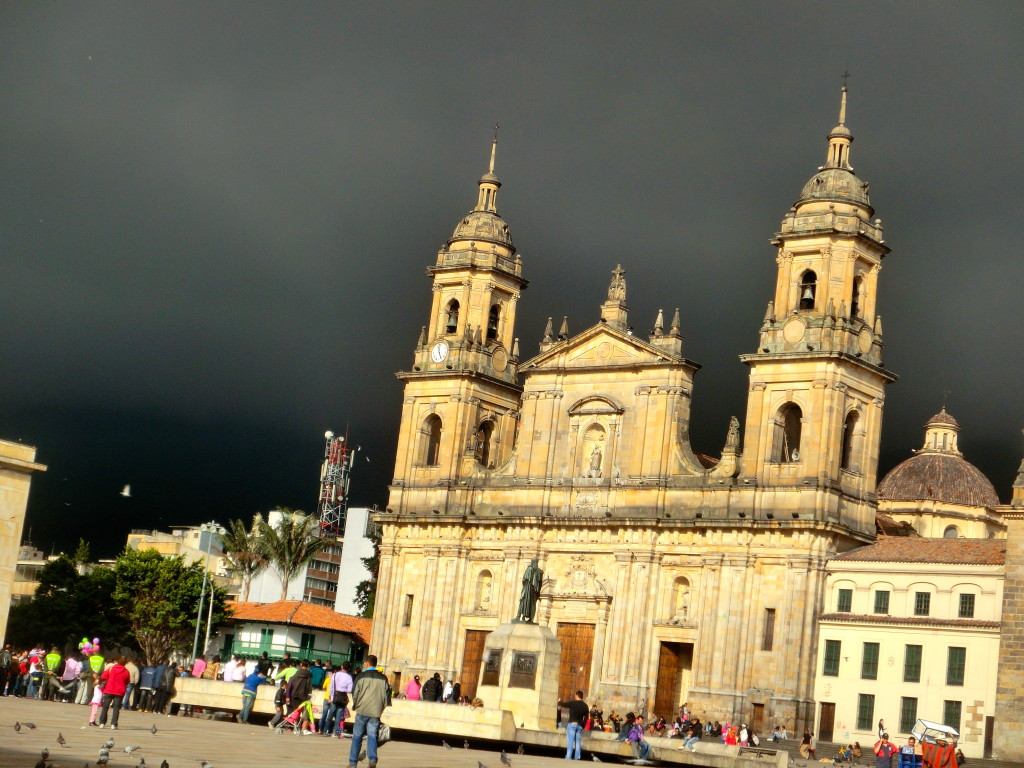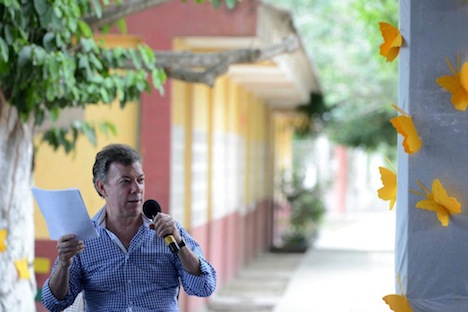
As Colombia prepares to vote in parliamentary and presidential elections in the first half of 2014, the mayor of Colombia’s capital city of Bogotá, former M-19 rebel Gustavo Petro, was removed from office yesterday in a government action that could have wide-ranging implications for Colombian politics, including the ongoing peace negotiations between the administration of president Juan Manuel Santos and FARC, the leftist guerrilla group.
Colombia’s inspector general Alejandro Ordóñez, an ally of conservative former president Álvaro Uribe, ordered Petro’s removal on the basis of abuse of office in respect of a showdown with Bogotá’s garbage collectors last year. Ordóñez ruled that Petro (pictured above) violated constitutional principles by attempting to replace private contractors in December 2012 with a city-run force — garbage piled up in the streets for three days, but the contractors ultimately returned to work. Ordóñez’s ruling claims that Petro’s actions during the showdown were unconstitutional and that, in addition to Petro’s removal from office, Petro should also be banished from Colombian politics for 15 years. The United Nations representative in Colombia has called for a meeting to discuss Petro’s removal, expressing concern for the potential violation of the rights of Bogotá citizens who elected Petro mayor two years ago.
It’s all caused somewhat of a controversy in Bogotá, given that the mayoral position is the second-most important elected position after the Colombia presidency. Petro and his leftist supporters have taken to the streets in protest, aghast at what they believe is a politically motivated decision by a right-wing official. Ordóñez last year removed Piedad Cordoba, a leftist politician with ties to former Venezuelan president Hugo Chávez, from Colombia’s Senado (Senate), banning her from public office for 18 years.
Petro’s ‘destitución‘ could affect both the ongoing negotiations in Havana between the Colombian government and the Fuerzas Armadas Revolucionarias de Colombia (FARC, Revolutionary Armed Forces of Colombia), as well as the upcoming May 2014 presidential election. His removal could discourage FARC leaders from agreeing to a final political settlement if they believe that Ordoñez and Colombia’s political elite are willing to revoke the results of a free election and remove a former guerrilla leader from a position of political power. Petro, even if banned from holding public office himself, could also find himself with more free time to help mobilize a united leftist alternative to Santos.
Petro won the Bogotá mayoral election in October 2011 in a marquee race — Petro took 32.2% of the vote, narrowly defeating Enrique Peñalosa, a member of the Partido Verde Colombiano (Colombian Green Party) who previously served as mayor from 1998 to 2001 and who won 24.9%. Former Colombian senator Gina Parody, with the support of another former mayor, Antanas Mockus, won 16.7%. Mockus, a bearded and bespectacled Colombian of Lithuanian descent, who briefly launched his own campaign for mayor in 2011 after resigning from the Green Party, is perhaps most well-known as the Green Party nominee for president in 2010, though he lost the runoff to Santos by a wide margin.
Though Petro has appealed the decision, Ordóñez’s office will hear the appeal, so it’s unlikely that Petro can legally reverse the decision. His removal comes after Samuel Moreno, Bogotá’s mayor between 2008 and 2011, was removed from office in relation to improprieties in city contract appropriations, and he remains in prison pending trial for corruption — after coming to office with the lofty promise of building a subway system for Bogotá, Moreno quickly began handing out contracts to his friends and associates. Petro’s misdeeds, by contrast, seem relatively less serious. Though if the removal holds, Santos will be entitled to appoint an interim mayor until new elections will be held early next year.
Petro’s tenure as mayor has been relatively rocky — a protest group had already collected enough signatures to force a recall vote, and Petro’s popularity has plummeted since he took office in January 2012. Continue reading Colombia’s inspector-general summarily removes Bogotá’s left-wing mayor →
![]()


